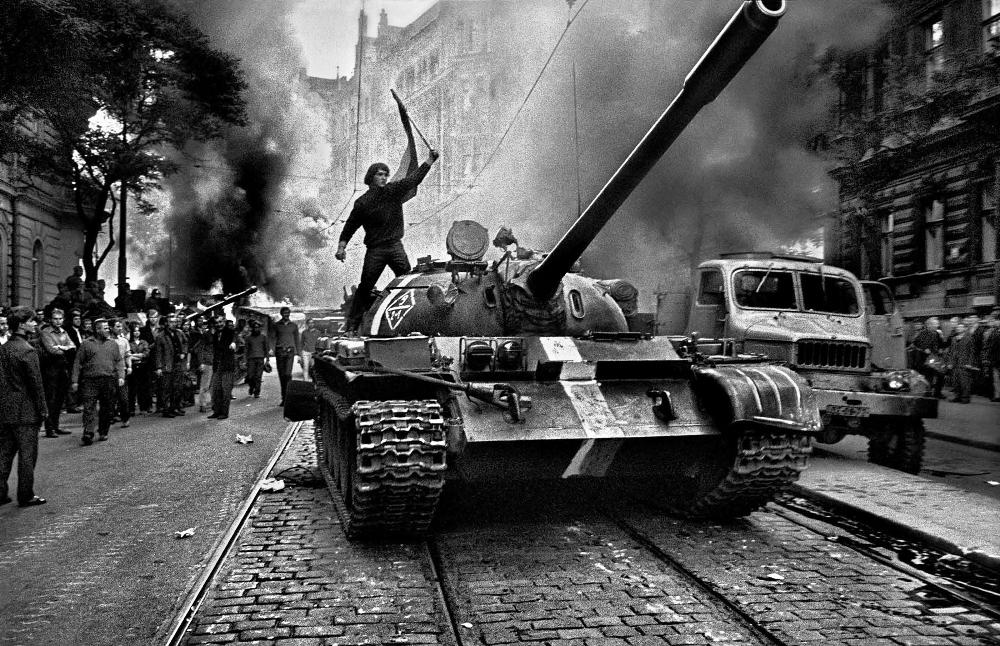On the night of 20 and the 21 August 1968 the Warsaw Pact troops entered Czechoslovakia with l’ aim to suppress and destroy the new political course implemented with l’ coming to power of Alexander Dubèek known as the Prague Spring. A political season that brought the change towards a socialism with a human face, a necessity of democratic reforms that don't suit him in Moscow. As already happened in Hungary in 1956 l’ The Soviet Union showed its true face, hard, totalitarian and liberticidal, intransigent towards every change. In code l’ It was called operation Danube and Storm, participated in five countries of the Warsaw Pact: Soviet Union, Bulgaria, Poland, Hungary and Germany East. L’ The Soviet Union sent the bulk of the troops. All’ Sunrise in the five countries troops marched into Prague, they had l’ intention to free the people of Czechoslovakia, waiting for them instead praguers welcomed them with hostility. In Moscow they were sure of the contrary, the Soviet media demanded reportage dell’ festive welcome that Czechoslovakia would have reserved for saviors. The tone of true hospitality was banned in the Soviet Union. Between the night of 20-21 August and the end of 1968 There were 92 deaths among soldiers of the face of the Warsaw Pact, many of them per incident. Czech side there are a hundred losses, only a small part due to firearms. L’ adventure in Prague for’ The Soviet Union was a defeat from a political point of view. Failed in’ “Enterprise” to repeat what happened in Hungary in 1956. They failed to impose a puppet government tied to Moscow. Dubèek was arrested. Meanwhile a clandestine Congress in a factory confirmed the confidence to Dubèek. The Soviets were forced to release it. The balance of power, however, all’ Interior of the party changed and with months Dubèek was removed from the party itself. The “normalization” from Moscow through his control led the leaders who had promoted the change to be expelled or forced to emigrate elsewhere and Prague Spring ran.
Hector Parker
